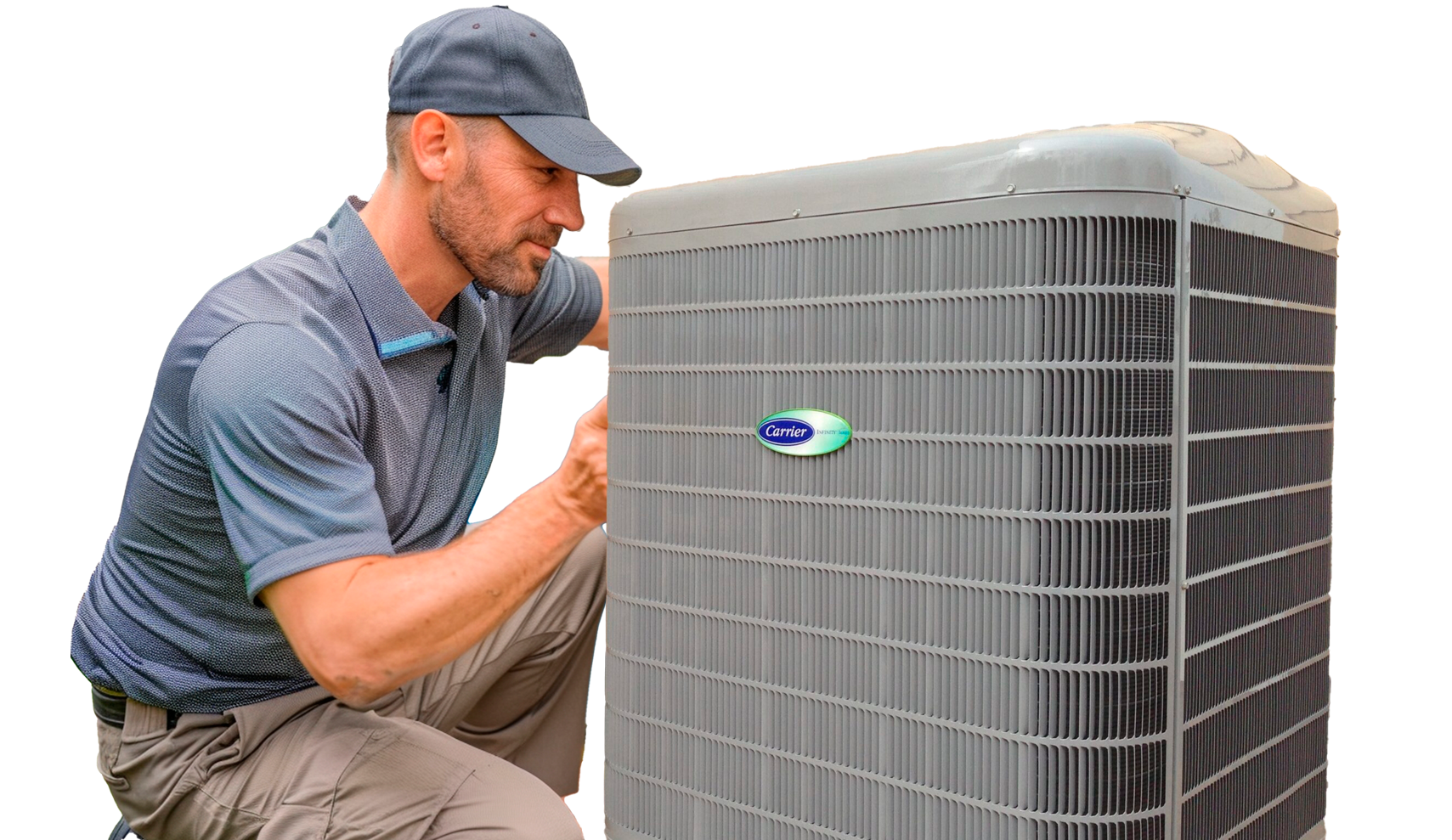Find Answers to Common HVAC Questions for Katy and all Houston Metro Area Residents
Find answers to the most common HVAC questions and learn how to keep your system running efficiently.
It’s recommended to schedule HVAC maintenance twice a year once before the cooling season (spring) and once before the heating season (fall). Regular maintenance helps ensure your system operates efficiently, reduces the risk of breakdowns, and extends the lifespan of your equipment. Proper maintenance also improves energy efficiency, helping you save on utility bills while keeping your home comfortable.
A smart thermostat allows you to control your home’s temperature remotely and set custom schedules, increasing energy efficiency. You can monitor and adjust your system from your smartphone, helping you save on energy bills. Additionally, smart thermostats learn your preferences over time, automatically adjusting to your comfort needs, and providing reports on energy usage to optimize efficiency.
Improving indoor air quality involves reducing pollutants like dust, pollen, and mold. Installing air purifiers, proper ventilation systems, and using high-efficiency filters in your HVAC system are effective methods. Regular duct cleaning, maintaining humidity control, and ensuring proper airflow also help. These measures reduce allergens and contaminants, leading to healthier indoor air and a more comfortable living environment.
Common signs that your HVAC system needs repairs include strange noises, uneven heating or cooling, increased energy bills, and weak airflow. If your system is running longer than usual or not reaching the desired temperature, it may be time for a professional inspection. Addressing these issues promptly can prevent more serious damage and costly repairs in the future.
The installation of a new air conditioning system typically takes one to two days, depending on the complexity of the project. Factors that influence the time include the size of your home, whether ductwork needs modification, and the type of system being installed. Our team will assess your specific situation and provide a clear timeline before starting the installation.
Signs of poor insulation include inconsistent indoor temperatures, high energy bills, drafts near windows and doors, and walls or floors that feel cold to the touch. If your HVAC system is running constantly but your home isn’t staying warm or cool, inadequate insulation may be the cause. Improving insulation helps your home retain heat in winter and stay cooler in summer, reducing energy consumption.
Duct cleaning removes dust, debris, and other contaminants from your ductwork, allowing air to flow more freely through your HVAC system. This improves efficiency, reducing the workload on your system and lowering energy costs. Clean ducts also enhance indoor air quality by preventing allergens and pollutants from circulating in your home, making it a healthier living environment.
In the event of an HVAC emergency, such as a sudden system breakdown, it’s important to turn off the system to prevent further damage. Contact our 24/7 emergency HVAC service for immediate assistance. Our technicians are available to quickly diagnose and repair the issue, restoring comfort to your home as soon as possible. We handle emergencies for both AC and heating systems.
Upgrading to energy-efficient HVAC systems, such as high-efficiency air conditioners or heat pumps, can significantly reduce your energy bills. Installing a smart thermostat and ensuring your home is properly insulated also helps optimize system performance. Regular maintenance and timely repairs keep your HVAC system running efficiently, further reducing energy consumption and lowering costs.
The average lifespan of an HVAC system is 15 to 20 years, depending on usage and maintenance. Regular maintenance, such as filter changes and system tune-ups, can help extend its lifespan. However, if your system is over 15 years old and frequently requires repairs, it may be time to consider a replacement with a more energy-efficient unit, which can also lower your energy bills.
To improve the efficiency of your heating system, schedule regular maintenance to clean and inspect the system. Ensure your home is well-insulated to reduce heat loss and keep doors and windows sealed properly. Upgrading to a programmable or smart thermostat helps control the temperature more precisely. Additionally, replacing an outdated heating system with an energy-efficient model can significantly improve efficiency.
Regular HVAC maintenance ensures your system operates efficiently, reduces the risk of unexpected breakdowns, and extends its lifespan. It also improves air quality by keeping filters and ducts clean, and helps you save money by maintaining energy efficiency. Regular inspections allow technicians to catch minor issues before they become costly repairs, ensuring your system runs smoothly throughout the year.
